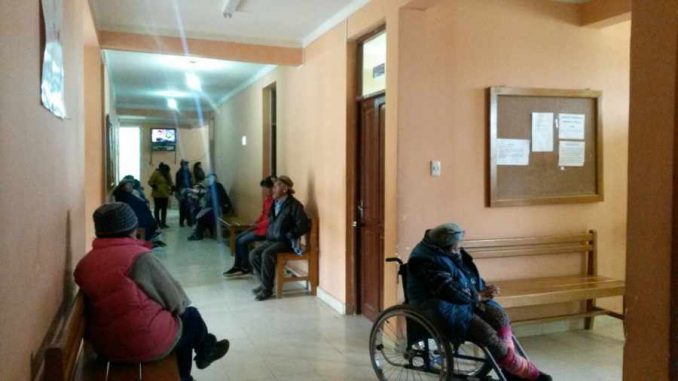
Published in El Pais, 30 January 2021.
In March 2019, the Single Health System (SUS) was launched, universal and free for Bolivia. This project is part of the commitment that Bolivia and all the countries belonging to the United Nations Organization (UN) have to achieve the Sustainable Development Goals (SDG), which have among their objectives to guarantee a healthy life and promote well-being for all in All ages. To achieve this, an especially important element is primary health care (PHC).
Primary health care is the step to the prevention of serious diseases or long treatments. A sick person does not work well, does not function well in the family, and all this involves high costs (medicines, hospital, time for those who take care of the sick). These costs affect the productivity of each person involved and the national economy in general. Therefore, for a country, a healthy person (mental and physical) is worth a lot for the growth of its economy. Efforts towards reaching a healthy population are more efficient if preventive health starts from a young age or even better, from children.
Quality universal health is very welcome, and it is important to avoid barriers to access it. But in these times of COVID-19 we must rethink the procedures to access the health system, breaking strong social and organizational paradigms. When you want to go to the doctor in the public health or insurance system, you must obtain a card. This may involve about three hours in line before the chip deal starts. Many will not have a chance to get a token despite being in line because there are not enough tokens. Then there is the wait for care that involves another wait of up to two hours in waiting rooms full of very sick patients and well patients. In COVID-19, you can no longer continue with this procedure, Bolivia has to avoid infections. In addition, other technical procedures such as the use of biosafety material and the time of its use should be rethought. 1 hour, 1 day, 1 patient? Discard, sterilize? We have the highest mortality rates in health personnel and also with other epidemics. Organizations have the responsibility to reinvent and modernize themselves to offer health to all without being the center of contagion for COVID-19 or other diseases and they have the obligation to eliminate all barriers that prevent access to health. Only in this way, Bolivia will be complying with the commitment to the SDGs and with the fight against COVID-19.
Health is not only health care or the vaccine but access to health and quality of care for both the patient and the health worker.



Canada has always had a universal health care system. All Canadians have a health card and when they go to the doctor or hospital they present their card. It is true if you go to the emergency room you may have to wait a while (bring a phone charger!) and sometimes the wait for surgeries can be many months but at least every Canadian has access to healthcare.
It is the same for the Netherlands. Sometimes we need to wait a bit, but from my experience the waiting is peanuts compared to developing countries were people can really be waiting all nights or morning just to have the option for an appointment. A big barrier and often a reason for people to not go. Very sad.